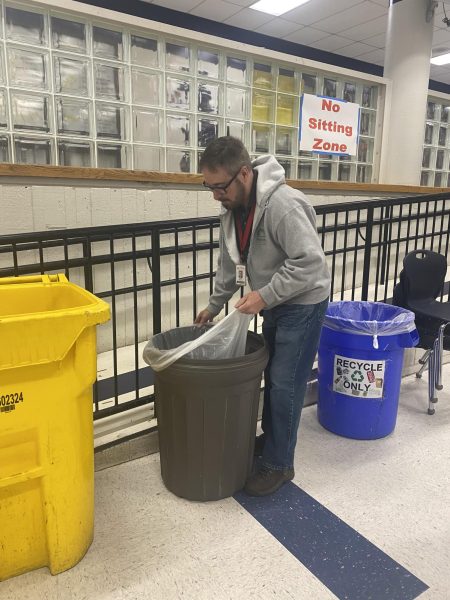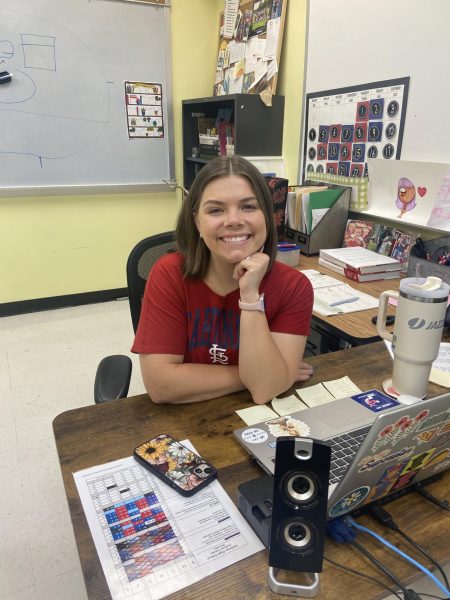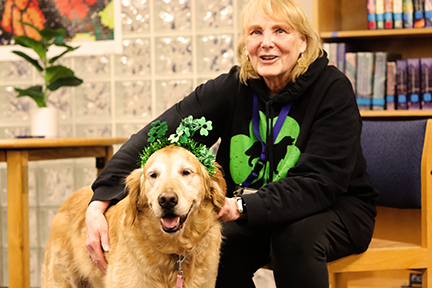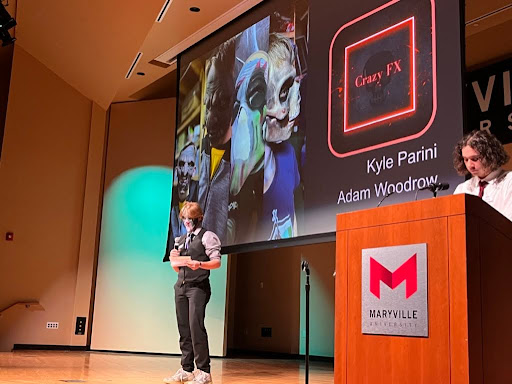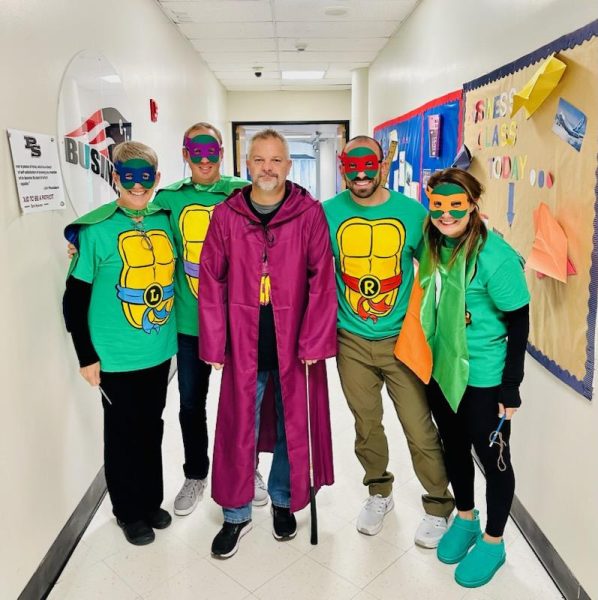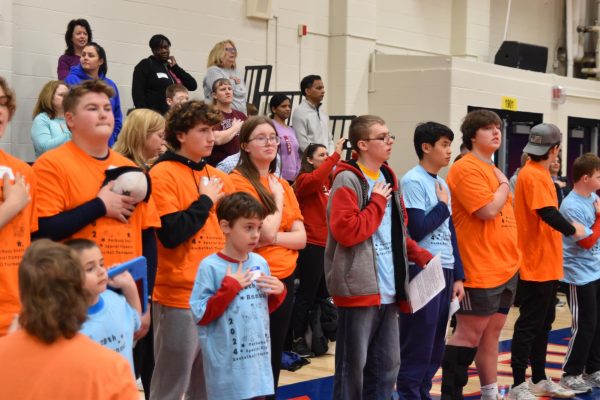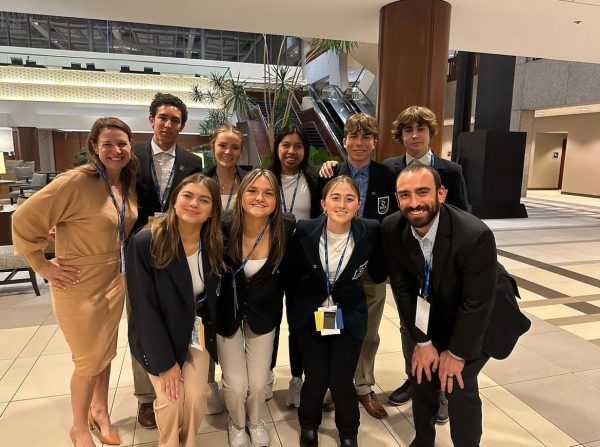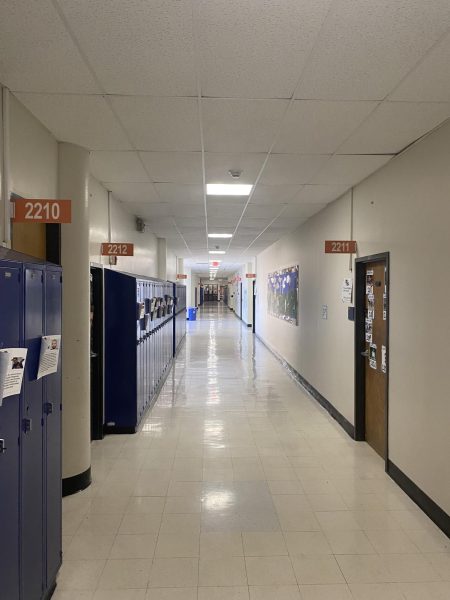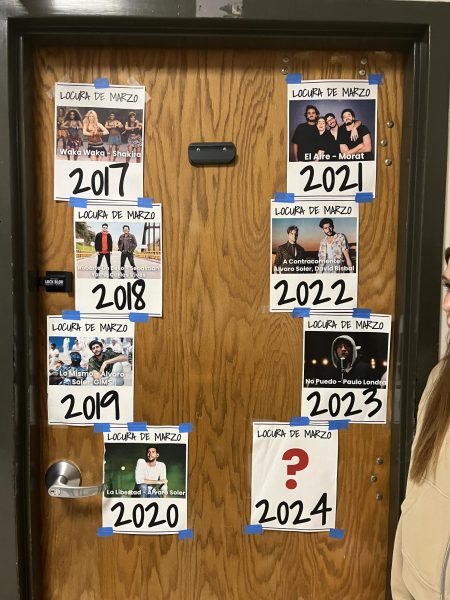Environmental Issues water bottles
Last year the U.S. used 50 billion disposable, plastic water bottles. Only 23 percent of these bottles were recycled meaning 38 billion of the bottles were thrown out and wasted. Parkway South’s Environmental Issues classes and National Honor Society have jumped on this to try and reduce waste produced by our school.
Last semester the two groups rolled out a blue, Nalgene style, water bottle designed to give students a reusable bottle. This semester’s classes are taking the reins on the marketing campaign.
This semester the Environmental Issue classes are making another marketing push. Junior Amanda Taylor came up with the idea of an Instagram account. This account, @pshreuse, featured students using their bottles over Spring Break.
The Environmental Issues classes and NHS have teamed up to make a difference at South and around the world. Environmental Issues is trying solve the problem of plastic bottles harming the environment. Their solution is to have school water bottles that are reusable to limit plastic water bottle use. NHS has the goal to raise money for Charity Water, which raises money to build a well for clean water in Africa. The money that is earned from the water bottles will go to NHS’s cause and build a well.
Environmental Issues teacher Joe Rhodes helped start this project and supports the student led movement.
“I thought there was an issue that needed to be addressed by the students and I just went for it,” said Rhodes.
He wants students to get the message that plastic is harming to the environment, but he says in the end that comes down to the Environmental Issues classes and himself spreading the word.
“Those who take my class understand the damage plastic can cause on the environment, but I think 75 percent of South doesn’t fully understand because they don’t see the plastic mounding up,” said Rhodes.
Plastic According to the Surfrider Foundation, which is a non-profit environmental organization that works to protect and preserve the world’s oceans, waves, and beaches. “more than a million seabirds and 100,000 marine mammals die every year from ingestion of or entanglement in plastics”
Junior Sarah Beninato doesn’t think South students know how plastic harms the environment.
“I don’t think students know how plastic affects the environment because I didn’t know the harmful effects until we started researching in class,” said Beninato.
Senior Evan McDurmont wants to help the environment too, but he has some concerns as well.
“People might forget to use the water bottles and I don’t know if we have our principals support to make a change,” said McDurmont.
McDurmont wants reusable water bottles at South to promote patriot spirit and for a cleaner campus for future classes.
“Hopefully students see the positive effects of having a reusable water bottle and notice the amount of money they save refilling it at home compared to buying a bottle constantly,” said McDurmont.
Beninato wants to help the environment and make a difference at South and around the world.
“I think if people use the water bottles and we raise enough money for a well in Africa, we will not only being helping the environment, but also people in another continent,” said Beninato.
Athletic Director Pat Burns supports the Reusable water bottle movement at South.
“I think it promotes school pride, shows we help the environment, and it supports a class,” said Burns.
Burns also said that water bottles are a popular thing here at South and he thinks they would be a hit.
“I look around at lunch and I see a bunch of water bottles on the tables. I think it will grow in popularity, but it won’t be overnight,” said Burns.
NHS sponsor and Counsellor … Lappin said it was a nice coincidence that environmental issues had similar goals to help with Charity Water.
“Our[NHS] goals are to raise money and awareness for a lack of impoverished water in poverty countries,” said Lappin.
NHS is hoping to build a well and the anticipated cost to do that is $2,000.
“I’m optimistic because of the enthusiasm of the kids in the environmental issues classes and NHS, but the biggest push will come from the kids in the environmental issues class,” said Lappin.
This movement is about changing culture and people’s attitude toward the environment says Lapin. I’m hoping we can make a bigger impact. Rhodes’s goal is to help the environment, but also something else.
“I want to see a greener South high, but more importantly I want my students to see they have the power to make a change,” said Rhodes.

